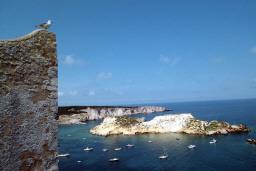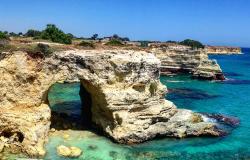DNA tests requested by Libyan leader Muammar Gaddafi to see if the inhabitants of a tiny Italian archipelago are descended from 1,300 Libyans once exiled there have proved negative, it was revealed Monday.
Tremiti Islands Mayor Giuseppe Calabrese said around 30 people volunteered for the tests, which were carried out by Libyan scientists, following an appeal from the Libyan embassy in Rome.
''From the results it doesn't seem that there are Libyan descendants among the Tremiti islanders,'' he said.
Around 1,300 Libyans were exiled to the Adriatic archipelago off the coast of Puglia after 1911, when Italy first colonised the North African country.
''Many of the Libyans deported to the Tremiti Islands died relatively soon afterwards from typhus, an illness they contracted before they arrived here, and were buried in a common grave'' said Calabrese.
A mausoleum in their honour was built in 2004 and was inaugurated in the presence of Libyan representatives, with whom the islanders ''have a strong friendship'', he added.
''I think this was an important experiment that we had a duty to carry out,'' said the mayor.
''It's essential that there is a good relationship between Libya and Italy and I think I can say that the first friendly actions came from the Tremiti Islands''.
Calabrese said he hoped that Gadaffi would visit the archipelago soon.
Around 350 people live on the islands, which are now a national marine reserve and a popular summer tourist resort thanks to their pristine waters.
However, the archipelago has a long history as a place of exile.
The Roman Emperor Augustus (27 BC-19 AD) banished his granddaughter Julia the Younger to the Tremiti Islands after discovering her affair with a senator, while up until 1926 political prisoners were sent here during the Fascist regime.
In August Italian Premier Silvio Berlusconi and Gaddafi signed a historic friendship and cooperation accord which aims to resolve issues related to Italy's colonial occupation of Libya.
Under the $5 billion deal, Italy will fund various projects including the Italian construction of a coastal highway linking Libya with Egypt and Tunisia, while the claims of 20,000 Italians expelled by Gaddafi from Libya in 1970 are also addressed.
On Thursday Italian Foreign Minister Franco Frattini is set to reveal details of the accord, which must still be ratified by parliament.



